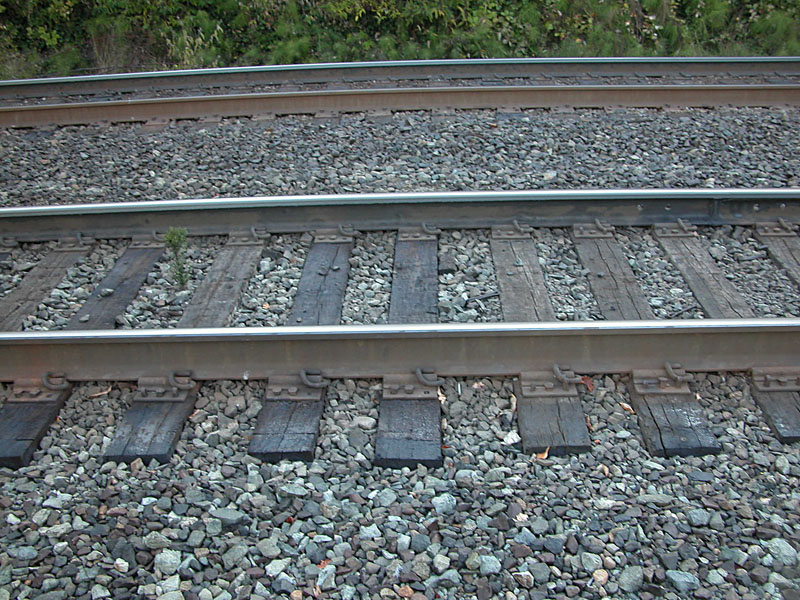RR Company Bars Access to Mississippi
Public stopped from fishing and other recreation on river. Proposed bill would stop this.
One of the best spots to ice fish is south of Alma just down the dugway from Carrol Iberg’s rural home.
Down there “ice fishing is really good,” Mr. Iberg told me. He fished five days a week and caught mostly pan fish, and a few northern and bass.
To get to one of the most accessible ice fishing areas around, just south of the power plant, you have to cross the railroad tracks.
The rail is owned by BNSF. The company is exerting its authority to enforce a trespassing law by hiring railroad “police” to guard the track.
Mr. Iberg did not think much of a black Tahoe parked along the highway when he went fishing. However, he was surprised when a uniformed “state trooper-looking” person with a gun on his hip threatened him. The rail “police” said Mr. Iberg was trespassing on railroad property by crossing the tracks to get to his fishing hole.
“What bothers me about this,” he said to me. “It’s something I’ve done all my life.”
I asked how long he has fished here. “Approximately 68 years. And I’m 75. My Dad took me and my brother here forever.” He asked me if I thought he had an “adverse possession” claim on the land – like farmers who farmed the same land for 20 years even though the land technically belonged to a neighbor.
I am not sure about the “adverse possession” claim, but threatening Mr. Iberg for ice fishing is going too far.
Rail lines run all along the Mighty Mississippi on Wisconsin’s west coast. For generations, anglers, birders, hikers, hunters and other outdoors enthusiasts crossed the tracks to get to publically owned – and otherwise inaccessible – land.
Long ago, when the rail line was built, people say all kinds of easements and agreements were put in place to assure locals kept access to the lands on the other side of the tracks.
Now the railroad is acting to cut off access to 230 miles of Mississippi River backwater and public lands by enforcing a 2005 law that eliminated the right of the public to cross the tracks.
George Meyer, representing the Wisconsin Wildlife Federation, testified public properties accessible only by crossing rail lines include state, county and national forests, US Fish and Wildlife refuges, hatcheries, boat access areas, state parks and “scores of other public properties owned by local units of government.“
The railroad lobbyist testified, “safety is the primary reason, but not the only reason we oppose the bill…it also creates opportunities for the many groups who protest crude by rail and other hazardous goods moved by rail.”
Concerns about protesters evidently led power, gas and transmission companies to lobby for another law to penalize trespassers; including prison time.
I told Mr. Iberg he should know Assembly Bill 547 would make trespassing on power company land a felony – with a $10,000 fine and maximum imprisonment of six years.
“How can they enforce this?” He asked. “When they built the power plant… They pleaded with us to sign on to allow them to put a turnaround [in the public land]… they wanted us to say it was OK to put in the [coal train] turnaround. They were still going to let us fish [inside the circular track.]”
During Senate debate, I explained the Alma power plant is very close to prime ice fishing public land. Inadvertent trespassing on power plant land should not land ice anglers in prison. But it wasn’t until I spoke with Mr. Iberg that I realized the power company built ON public land and prime fishing holes were INSIDE the power company’s circular tracks.
“What happened to America the Land of the Free?” I asked Mr. Iberg. “Exactly” he said. “There’s no use in living by a river if you can’t use it.”
That would be OUR River, and OUR public lands. Or it used to be.
Sen. Kathleen Vinehout, D-Alma, is a member of the Wisconsin state Senate.
Op-Ed
-
Why Vote for MPS Funding Referendum
 Mar 30th, 2024 by Nehemiah Edwards
Mar 30th, 2024 by Nehemiah Edwards
-
Wisconsin’s Very Own Rudy Giuliani Should Not Oversee Judicial Ethics
 Mar 25th, 2024 by Richard Niess
Mar 25th, 2024 by Richard Niess
-
Voting at Wisconsin’s Universities Isn’t Easy
 Mar 17th, 2024 by Nicole Laudolff
Mar 17th, 2024 by Nicole Laudolff


















Man that was a poorly written piece.
The author’s indication that railroad “police” are not real police is completely improper. I am a railroad police officer with full legal jurisdiction, multi-state commission with federal authority. I can and will detain, cite, arrest and jail people for violating the law on railroad property including trespassing. I am going to go out on a limb to guess there was either a collision or near collision at this location to cause the enforcement of trespassing laws. If the community wishes to have public access all the state has to do is install a public at-grade crossing with appropriate protection. Pretty simple really. Otherwise, if you are on the tracks you are absolutely trespassing no matter how many years you have been doing so.